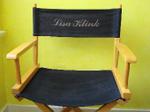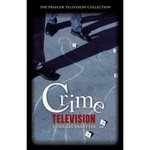Ken Levine fondly remembers the good old days when the networks would burn off their busted pilots during the summer, either sneaking them on unannounced or as episodes of anthologies with names like "Comedy Theatre" and "CBS Summer Playhouse." I miss those shows, too. It was those stealth airings of scrapped programs that sparked my love affair with busted pilots when I was a kid and ultimately resulted in my book UNSOLD TELEVISION PILOTS.
Seeing the pilots was a remarkable opportunity to second-guess network programmers and to try to understand their thinking when they crafted their schedules. Most of the time, there was a good reason the pilots didn’t sell…but every now and then, I’d catch a terrific show and feel cheated that it wasn’t picked up.
Watching those flop pilots was fascinating and a highlight of my summers. I looked forward to it all year (though flop pilots occasionally aired during the regular season, too, usually as TV movies or, near May, as episodes of existing series). I used to tape them all on audio cassette (yes, I am a geek) and once video came along, I recorded them all on VHS. Those tapes became the basis for two network specials that I produced — THE GREATEST SHOWS YOU NEVER SAW for CBS and THE BEST SHOWS THAT NEVER WERE for ABC. Over the last year, I’ve transferred that collection to DVD.
These days, busted pilots are never aired and it’s getting harder and harder even for TV insiders like yours truly to get their hands on screeners. And when you do get one, it feels like you are being slipped stolen property.





